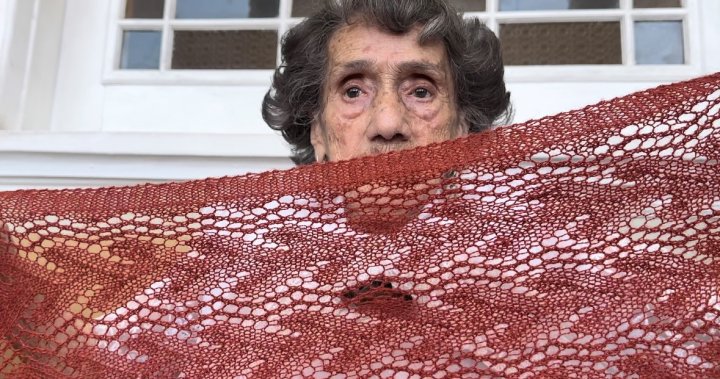General News
Muskox wool unites Peruvian knitting family with hunting families from Canada’s arctic

It’s as synonymous to Peru as hockey is to Canada, woven deeply into the cultural fabric of the South American country is the intricate textile industry.
Rainbows of hand-knit garments blanket shops and market stalls from the coastal capital to high up in the Andes.
Knitting and weaving are skills passed down through the generations in Peru but one family business has sewed together a unique partnership between two groups of people from opposite ends of the Americas.
“When I was a little girl, I knit a little sweater for me,” said 89-year-old Leonor Becerra de Alvarez, from the balcony of her business in Arequipa, Peru. “I like so much to knit. When I was big and married I think I say we can do something for all the people because knitting is a nice thing to do.”
Three decades ago, she started Qori Exports with her sons. A team of knitters make fine garments out of Alpaca and Vicuna wool. It didn’t take long before they decided to branch out to other parts of the world.
“Then we say why don’t we send to another country and see, ” said Becerra de Alvarez. “If they like it we’d be very grateful to them.”
While it’s common to find garments made from alpaca in Peru, 70 per cent of Qori Exports goods are made out of qiviuk — the wool of muskox, an animal found in the high arctic.
Get the latest National news.
Sent to your email, every day.
“The air feel that qiviuk has, no other fiber has. It’s soft as a cloud,” said Fernando Alvarez, the owner of Qiviuk Boutique in Banff and the CEO of Qori Exports. “This is something very special and very unique we can offer to the world.”
“The air feel that qiviuk has, no other fiber has. It’s soft as a cloud,” Fernando Alvarez, Qori Experts CEO.
Global News
Qori Exports works with hunters like David Anavilok who lives in Taloyoak, Nunavut. His family relies on muskox meat to survive.
“In the past ten years the population has rapidly increased, when they are overpopulated, they tend to get sickness and die all at once,” explained Anavilok. “The meat I share is to elders and to widows and people who have no transportation and they are always happy to receive meat from me and my family.”
Anavilok said all part of the animals they hunt are utilized and the muskox hides are sent Qori exports headquarters in Peru. The qiviuk is made into yarn and then knit by hand into high-end garments. The clothing is then sold in store shops in Peru, New York City and Banff, where Fernado Alvarez calls home.
Qiviuk wool, washed and drying in the sun in Peru.
Global News
The company and hunters said they also have a responsibility to raise awareness about muskox to ensure they are not overhunted.
“This is a survivor of the last ice age that we have to bring to the world but with respect and with adequate practices and serving the people that have co-existed with it for thousands of years,” said Alvarez.
“We have to keep it in balance between nature and people , so we can all have the chance to see them and even wear the sweaters when possible.”
Just as knitting is passed down in Peru, hunting and cleaning hides is shared between the generations in Nunavut. David Anavilok is teaching his children their family traditions.
“That is the attitude we have to develop, we have to consume less but in a much more conscious way of consuming,” said Alvarez.
Two groups of people sharing their skills and values, determined to keep their partnership sustainable.
© 2023 Global News, a division of Corus Entertainment Inc.
Source
Disclaimer: No copyright infringement intended. All rights and credits reserved to respective owner(s).

























